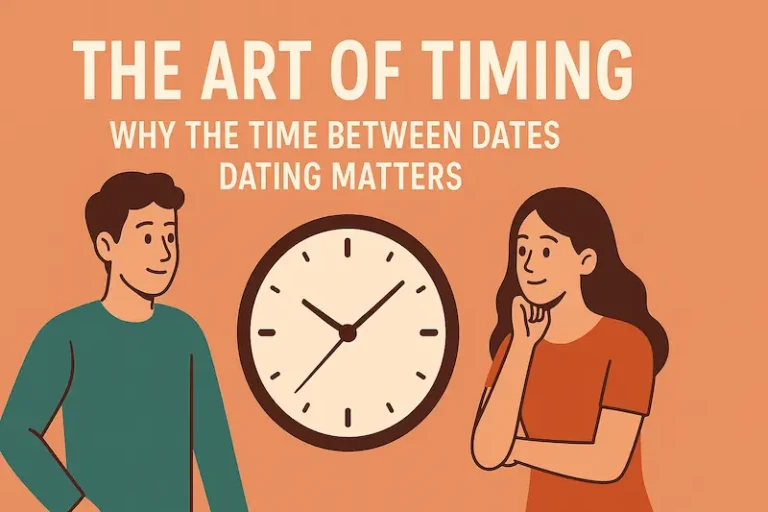Anticipatory Anxiety: What It Is & 3 Proven Ways to Cope

Table of Contents
Have you ever spent weeks stressing about a college midterm that’s still two months away, replaying “what if I fail?” in your head every night? Or felt overwhelmed by worry about a work presentation before you’ve even drafted the first slide? Maybe you’ve even found yourself anxious about finding a life partner or buying a home—long before those milestones are within reach. If this sounds familiar, you’re likely dealing with anticipatory anxiety—a common yet often unrecognized form of anxiety that fixates on future uncertainties rather than present realities.
Left unmanaged, anticipatory anxiety can steal joy from the present, harm your health, and hold you back from growth. The good news? There are evidence-based strategies to break its cycle. Let’s start by understanding what anticipatory anxiety really is.
What Is Anticipatory Anxiety? A Psychological Breakdown
At its core, anticipatory anxiety is excessive, out-of-proportion worry about potential future events. Unlike anxiety triggered by immediate threats (e.g., a car swerving in front of you), it stems from imagined outcomes—not real, present dangers.
The American Psychological Association (APA) defines it as “a state of unease characterized by concern about future threats or negative experiences.” Our brains are wired to imagine the future—a trait that helped early humans avoid predators and plan for food scarcity. But when this ability becomes overactive, it shifts from a survival tool to a source of distress.
For example:
- A recent graduate might fixate on “what if I never find a job?” even before applying to roles.
- A new parent could worry nonstop about “what if my child gets sick?” despite their kid being healthy.
- A professional might stress about “what if I mess up this client call?” days in advance.
This persistent “what-if” thinking triggers physical and mental symptoms, including:
- Racing heart or shortness of breath
- Insomnia or restless sleep
- Difficulty concentrating on daily tasks
- Irritability or mood swings
- Muscle tension (especially in the shoulders or neck)
Why Do We Experience Anticipatory Anxiety? 3 Key Causes
Anticipatory anxiety isn’t a “flaw”—it’s rooted in how our brains evolved, how we think, and how our neural pathways form. Here are the three main drivers:
1. Evolutionary Hardwiring: Our Brain’s “Fight-or-Flight” Instinct
Our brains still carry traces of prehistoric survival instincts. The amygdala—the part of the brain responsible for processing fear—evolved to react quickly to threats, triggering the “fight-or-flight” response to keep us alive.
Today, our environment is far safer, but this ancient wiring remains. For instance:
- When you’re preparing for a team presentation at work, your amygdala might misinterpret the stress of public speaking as a life-threatening situation (like facing a wild animal).
- When you think about an upcoming job interview, your brain could flood your body with cortisol (the “stress hormone”) as if you’re about to face danger.
This mix-up turns everyday future challenges into sources of anxiety—even when they pose no real risk.
2. Cognitive Distortions: Catastrophic Thinking
One of the biggest drivers of anticipatory anxiety is catastrophic thinking—a cognitive distortion where we filter out positive possibilities and fixate on the worst-case scenario.
This thinking pattern is common in the U.S., where a culture of “hustle” and “perfectionism” can amplify fear of failure. For example:
- If you make a small mistake on a work project, you might jump to: “My boss will fire me, and I’ll ruin my career.”
- If you go on a first date, you might worry: “They’ll hate me, and I’ll never find love.”
These thoughts ignore reality: most mistakes are fixable, and one bad date doesn’t define your love life. But when you’re stuck in catastrophic thinking, every future challenge feels like a potential disaster.
3. Neuroplasticity: The Formation of Anxiety Habits
Neuroplasticity—the brain’s ability to rewire itself based on experience—plays a role in long-term anticipatory anxiety. Every time you dwell on future worries, you strengthen the neural connections between your prefrontal cortex (the “thinking” part of the brain) and your amygdala.
Over time, this creates a “habit of anxiety.” For example:
- If you feel extremely anxious before every job interview, your brain will start associating interviews with fear.
- Eventually, just the thought of an upcoming interview—even one you’re qualified for—will trigger that same anxious response automatically, without you even realizing it.
The good news? Neuroplasticity works both ways: you can rewire your brain to reduce anxiety by practicing new, healthy habits.
The Hidden Costs of Unmanaged Anticipatory Anxiety
Anticipatory anxiety doesn’t just feel unpleasant—it can have real, long-term consequences for your life. Here are three key ways it impacts you:
1. It Robs You of Present Joy
The most immediate cost of anticipatory anxiety is that it pulls your focus away from the present, making it impossible to enjoy current moments.
Imagine planning a weekend trip to the Grand Canyon—something you’ve looked forward to for months. But instead of excitement, you’re consumed with worry:
- “What if my flight is delayed?”
- “What if the hotel is dirty?”
- “What if I get sick while traveling?”
By fixating on these hypothetical issues, you miss out on the pleasure of packing, researching hiking trails, and even the trip itself. You might also ruin the experience for friends or family who are trying to enjoy the moment with you.
A 2025 study published in the Journal of Positive Psychology found that people with high anticipatory anxiety report 30% lower satisfaction with daily activities compared to those who stay present.
2. It Harms Physical and Mental Health
Chronic anticipatory anxiety takes a toll on both your body and mind.
Physically, it can:
- Raise blood pressure and increase the risk of heart disease (per the American Heart Association).
- Disrupt sleep, leading to fatigue and weakened immunity—making you more susceptible to colds, flu, and other illnesses (research from the University of Pittsburgh).
- Cause digestive issues like irritable bowel syndrome (IBS), as stress hormones disrupt gut health.
Mentally, it erodes self-confidence and creates a cycle of fear: the more you worry about the future, the more you doubt your ability to handle challenges. Over time, this can escalate into generalized anxiety disorder (GAD), a condition that affects 6.8 million adults in the U.S. (APA, 2023).
3. It Stalls Personal and Professional Growth
Anticipatory anxiety keeps you stuck in your comfort zone, preventing you from pursuing opportunities. This is especially impactful in the U.S., where career and personal growth are often central to identity.
For example:
- You have a great idea for a side business (like a freelance writing service or a handmade jewelry shop) but worry: “What if I run out of money?” “What if no one buys my product?” These fears keep you from researching, networking, or creating a business plan.
- You want to learn a new skill (like coding or public speaking) but anxiety about “being bad at it at first” stops you from signing up for a class.
- You’re interested in dating but worry about “getting rejected” so you avoid putting yourself out there.
Before you know it, months (or years) pass, and your goals remain unfulfilled—all because fear of the future overshadowed your desire to grow.
3 Evidence-Based Strategies to Cope with Anticipatory Anxiety
The good news is that anticipatory anxiety is manageable. The following three strategies are backed by research and used by mental health professionals across the U.S. to help people take back control.
1. Practice Mindfulness to Stay Grounded in the Present
Mindfulness is one of the most effective tools for breaking the cycle of future-focused worry. It involves intentionally paying attention to the present moment—your breath, your senses, your surroundings—without judgment.
Research from the University of California, Los Angeles (UCLA) shows that regular mindfulness practice can reduce activity in the amygdala (the brain’s fear center) and lower symptoms of anticipatory anxiety by up to 40% in 8 weeks.
Here’s how to start (even if you’re new to mindfulness):
- Daily meditation: Set aside 15-20 minutes each morning or evening. Sit comfortably, close your eyes, and focus on the sensation of air entering and leaving your lungs. When your mind wanders to future worries (e.g., “I need to finish that report tomorrow”), gently bring your attention back to your breath. Don’t criticize yourself for wandering—this is normal.
- Mindful daily activities: Turn routine tasks into mindfulness exercises. When you’re eating breakfast, notice the taste, texture, and smell of your food (instead of scrolling through emails). When you’re walking to work, feel the ground beneath your feet and the wind on your face.
- Quick mindfulness breaks: If you feel anxious during the day, take a 1-minute break. Name 5 things you see, 4 things you feel, 3 things you hear, 2 things you smell, and 1 thing you taste. This pulls your brain back to the present.
2. Use Cognitive Behavioral Therapy (CBT) to Challenge Unreasonable Beliefs
Cognitive Behavioral Therapy (CBT) is a gold-standard treatment for anxiety disorders—including anticipatory anxiety. It focuses on identifying and changing negative thought patterns that fuel worry. Many Americans use CBT techniques on their own (or with a therapist) to manage anxiety.
The key CBT exercise for anticipatory anxiety is called “thought challenging.” Here’s how to do it step by step:
- Write down the anxious thought: Be specific. For example: “If I mess up my job interview, I’ll never get another offer.”
- Ask: “What evidence do I have for this?”: Be honest. Do you have a history of failing interviews? Or is this a fear without facts? (Most of the time, it’s the latter.)
- Ask: “What’s a more realistic outcome?”: What’s the most likely scenario? For example: “Even if I’m nervous, I can answer the questions well. If this interview doesn’t work out, there will be other opportunities—employers hire people who make mistakes all the time.”
- Replace the negative thought with a balanced one: Instead of “I’ll never get another offer,” try: “This interview is a chance to show my skills. Whatever happens, I’ll learn from it.”
Repeat this exercise every time you feel overwhelmed by future worries. Over time, it will help you break free from catastrophic thinking and see the future more objectively.
3. Create Specific Daily Plans to Build a Sense of Control
Feeling out of control fuels anticipatory anxiety. When you have a clear, actionable plan, you shift from worrying about the future to taking small steps in the present—and this builds confidence.
A 2021 study in the Journal of Clinical Psychology found that people who create daily plans report 25% less anticipatory anxiety than those who don’t, because plans reduce uncertainty.
Here’s how to create effective daily plans (that actually work):
- Be specific, not vague: Avoid goals like “work on the project.” Instead, use specific steps: “Research 3 competitors for the project” or “Draft the first section of the report.” Vague goals feel overwhelming; specific steps feel doable.
- Prioritize 1-2 key tasks: Don’t list 10 things—focus on 1-2 high-priority items. Completing these will give you a sense of accomplishment that reduces anxiety.
- Check off tasks as you go: The act of checking items off a list releases dopamine (a neurotransmitter that boosts mood and reduces anxiety). Use a notebook or a digital tool like Todoist to track your progress.
For example, if you’re anxious about an upcoming college exam, your daily plan might include:
- “Review 2 chapters of biology notes”
- “Practice 10 sample questions”
- “Ask my professor one question about the material I’m confused about”
Each completed task brings you closer to your goal—and farther from worry.
CTA
In summary, anticipatory anxiety thrives on uncertainty about the future—but it doesn’t have to control your life. By understanding its roots (evolutionary wiring, cognitive distortions, and neuroplasticity), you can take targeted steps to cope.
The three strategies we covered—mindfulness, CBT thought challenging, and daily planning—are evidence-based, accessible, and proven to work. You don’t need to be “perfect” at them; even small, consistent efforts will make a difference.
Remember: Life is made of present moments, not future “what-ifs.” Don’t let worry about tomorrow steal the joy of today.
If you found these tips helpful, share this article with a friend who might be struggling with anticipatory anxiety—you could help them feel less alone. And leave a comment below: What’s one small step you’ll take this week to stay present (e.g., try a 10-minute mindfulness session, write down an anxious thought to challenge)?







Hi there! I simply want to give an enormous thumbs up for the nice data you will have right here on this post. I might be coming back to your weblog for extra soon.
I have been exploring for a little bit for any high quality articles or blog posts on this kind of area . Exploring in Yahoo I at last stumbled upon this website. Reading this info So i am happy to convey that I’ve an incredibly good uncanny feeling I discovered exactly what I needed. I most certainly will make sure to do not forget this website and give it a glance on a constant basis.
I’d have to examine with you here. Which is not one thing I usually do! I take pleasure in reading a post that may make folks think. Additionally, thanks for permitting me to comment!
I like what you guys are up too. Such clever work and reporting! Keep up the excellent works guys I have incorporated you guys to my blogroll. I think it will improve the value of my site 🙂
Strong points made